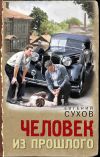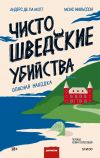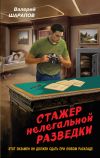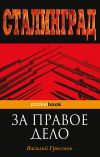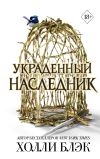Текст книги "The Great Boer War"

Автор книги: Arthur Conan Doyle
Жанр: Зарубежная публицистика, Публицистика
Возрастные ограничения: +12
сообщить о неприемлемом содержимом
Текущая страница: 21 (всего у книги 43 страниц)
Chapter 20. Roberts's advance on Bloemfontein
The surrender of Cronje had taken place on February 27th, obliterating for ever the triumphant memories which the Boers had for twenty years associated with that date. A halt was necessary to provide food for the hungry troops, and above all to enable the cavalry horses to pick up. The supply of forage had been most inadequate, and the beasts had not yet learned to find a living from the dry withered herbage of the veld[7]7
A battery which turned out its horses to graze found that the puzzled creatures simply galloped about the plain, and could only be reassembled by blowing the call which they associated with feeding, when they rushed back and waited in lines for their nosebags to be put on.
[Закрыть]. In addition to this, they had been worked most desperately during the fortnight which had elapsed. Lord Roberts waited therefore at Osfontein, which is a farmhouse close to Paardeberg, until his cavalry were fit for an advance. On March 6th he began his march for Bloemfontein.
The force which had been hovering to the south and east of him during the Paardeberg operations had meanwhile been reinforced from Colesberg and from Ladysmith until it had attained considerable proportions. This army, under the leadership of De Wet, had taken up a strong position a few miles to the east, covering a considerable range of kopjes. On March 3rd a reconnaissance was made of it, in which some of our guns were engaged; but it was not until three days later that the army advanced with the intention of turning or forcing it. In the meantime reinforcements had been arriving in the British camp, derived partly from the regiments which had been employed at other points during these operations, and partly from newcomers from the outer Empire. The Guards came up from Klip Drift, the City Imperial Volunteers, the Australian Mounted Infantry, the Burmese Mounted Infantry and a detachment of light horse from Ceylon helped to form this strange invading army which was drawn from five continents and yet had no alien in its ranks.
The position which the enemy had taken up at Poplars Grove (so called from a group of poplars round a farmhouse in the centre of their position) extended across the Modder River and was buttressed on either side by well-marked hills, with intermittent kopjes between. With guns, trenches, rifle pits, and barbed wire a bull-headed general might have found it another Magersfontein. But it is only just to Lord Roberts's predecessors in command to say that it is easy to do things with three cavalry brigades which it is difficult to do with two regiments. The ultimate blame does not rest with the man who failed with the two regiments, but with those who gave him inadequate means for the work which he had to do. And in this estimate of means our military authorities, our politicians, and our public were all in the first instance equally mistaken.
Lord Roberts's plan was absolutely simple, and yet, had it been carried out as conceived, absolutely effective. It was not his intention to go near any of that entanglement of ditch and wire which had been so carefully erected for his undoing. The weaker party, if it be wise, atones for its weakness by entrenchments. The stronger party, if it be wise, leaves the entrenchments alone and uses its strength to go round them. Lord Roberts meant to go round. With his immense preponderance of men and guns the capture or dispersal of the enemy's army might be reduced to a certainty. Once surrounded, they must either come out into the open or they must surrender.
On March 6th the cavalry were brought across the river, and in the early morning of March 7th they were sent off in the darkness to sweep round the left wing of the Boers and to establish themselves on the line of their retreat. Kelly-Kenny's Division (6th) had orders to follow and support this movement. Meanwhile Tucker was to push straight along the southern bank of the river, though we may surmise that his instructions were, in case of resistance, not to push his attack home. Colvile's 9th Division, with part of the naval brigade, were north of the river, the latter to shell the drifts in case the Boers tried to cross, and the infantry to execute a turning movement which would correspond with that of the cavalry on the other flank.
The plan of action was based, however, upon one supposition which proved to be fallacious. It was that after having prepared so elaborate a position the enemy would stop at least a little time to defend it. Nothing of the sort occurred, however, and on the instant that they realised that the cavalry was on their flank they made off. The infantry did not fire a shot.
The result of this very decisive flight was to derange all calculations entirely. The cavalry was not yet in its place when the Boer army streamed off between the kopjes. One would have thought, however, that they would have had a dash for the wagons and the guns, even if they were past them. It is unfair to criticise a movement until one is certain as to the positive orders which the leader may have received; but on the face of it it is clear that the sweep of our cavalry was not wide enough, and that they erred by edging to the left instead of to the right, so leaving the flying enemies always to the outside of them.
As it was, however, there seemed every possibility of their getting the guns, but De Wet very cleverly covered them by his skirmishers. Taking possession of a farmhouse on the right flank they kept up a spirited fire upon the 16th Lancers and upon P battery R.H.A. When at last the latter drove them out of their shelter, they again formed upon a low kopje and poured so galling a fire upon the right wing that the whole movement was interrupted until we had driven this little body of fifty men from their position. When, after a delay of an hour, the cavalry at last succeeded in dislodging them – or possibly it may be fairer to say when, having accomplished their purpose, they retired – the guns and wagons were out of reach, and, what is more important, the two Presidents, both Steyn and Kruger, who had come to stiffen the resistance of the burghers, had escaped.
Making every allowance for the weary state of the horses, it is impossible to say that our cavalry were handled with energy or judgment on this occasion. That such a force of men and guns should be held off from an object of such importance by so small a resistance reflects no credit upon us. It would have been better to repeat the Kimberley tactics and to sweep the regiments in extended order past the obstacle if we could not pass over it. At the other side of that little ill-defended kopje lay a possible termination of the war, and our crack cavalry regiments manoeuvred for hours and let it pass out of their reach. However, as Lord Roberts good-humouredly remarked at the end of the action, 'In war you can't expect everything to come out right.' General French can afford to shed one leaf from his laurel wreath. On the other hand, no words can be too high for the gallant little band of Boers who had the courage to face that overwhelming mass of horsemen, and to bluff them into regarding this handful as a force fighting a serious rearguard action. When the stories of the war are told round the fires in the lonely veld farmhouses, as they will be for a century to come, this one deserves an honoured place.
The victory, if such a word can apply to such an action, had cost some fifty or sixty of the cavalry killed and wounded, while it is doubtful if the Boers lost as many. The finest military display on the British side had been the magnificent marching of Kelly-Kenny's 6th Division, who had gone for ten hours with hardly a halt. One 9-pound Krupp gun was the only trophy. On the other hand, Roberts had turned them out of their strong position, had gained twelve or fifteen miles on he road to Bloemfontein, and for the first time shown how helpless a Boer army was in country which gave our numbers a chance. From now onwards it was only in surprise and ambuscade that they could hope for a success. We had learned and they had learned that they could not stand in the open field.
The action of Poplars Grove was fought on March 7th. On the 9th the army was again on its way, and on the 10th it attacked the new position which the Boers had occupied at a place called Driefontein, or Abram's Kraal. They covered a front of some seven miles in such a formation that their wings were protected, the northern by the river and the southern by flanking bastions of hill extending for some distance to the rear. If the position had been defended as well as it had been chosen, the task would have been a severe one.
Since the Modder covered the enemy's right the turning movement could only be developed on their left, and Tucker's Division was thrown out very wide on that side for the purpose. But in the meanwhile a contretemps had occurred which threw out and seriously hampered the whole British line of battle. General French was in command of the left wing, which included Kelly-Kenny's Division, the first cavalry brigade, and Alderson's Mounted Infantry. His orders had been to keep in touch with the centre, and to avoid pushing his attack home. In endeavouring to carry out these instructions French moved his men more and more to the right, until he had really squeezed in between the Boers and Lord Roberts's central column, and so masked the latter. The essence of the whole operation was that the frontal attack should not be delivered until Tucker had worked round to the rear of the position. It is for military critics to decide whether it was that the flankers were too slow or the frontal assailants were too fast, but it is certain that Kelly-Kenny's Division attacked before the cavalry and the 7th Division were in their place. Kelly-Kenny was informed that the position in front of him had been abandoned, and four regiments, the Buffs, the Essex, the Welsh, and the Yorkshires, were advanced against it. They were passing over the open when the crash of the Mauser fire burst out in front of them, and the bullets hissed and thudded among the ranks. The ordeal was a very severe one. The Yorkshires were swung round wide upon the right, but the rest of the brigade, the Welsh Regiment leading, made a frontal attack upon the ridge. It was done coolly and deliberately, the men taking advantage of every possible cover. Boers could be seen leaving their position in small bodies as the crackling, swaying line of the British surged ever higher upon the hillside. At last, with a cheer, the Welshmen with their Kent and Essex comrades swept over the crest into the ranks of that cosmopolitan crew of sturdy adventurers who are known as the Johannesburg Police. For once the loss of the defence was greater than that of the attack. These mercenaries had not the instinct which teaches the Boer the right instant for flight, and they held their position too long to get away. The British had left four hundred men on the track of that gallant advance, but the vast majority of them were wounded – too often by those explosive or expansive missiles which make war more hideous. Of the Boers we actually buried over a hundred on the ridge, and their total casualties must have been considerably in excess of ours.
The action was strategically well conceived; all that Lord Roberts could do for complete success had been done; but tactically it was a poor affair, considering his enormous preponderance in men and guns. There was no glory in it, save for the four regiments who set their faces against that sleet of lead. The artillery did not do well, and were browbeaten by guns which they should have smothered under their fire. The cavalry cannot be said to have done well either. And yet, when all is said, the action is an important one, for the enemy were badly shaken by the result. The Johannesburg Police, who had been among their corps d'elite, had been badly mauled, and the burghers were impressed by one more example of the impossibility of standing in anything approaching to open country against disciplined troops, Roberts had not captured the guns, but the road had been cleared for him to Bloemfontein and, what is more singular, to Pretoria; for though hundreds of miles intervene between the field of Driefontein and the Transvaal capital, he never again met a force which was willing to look his infantry in the eyes in a pitched battle. Surprises and skirmishes were many, but it was the last time, save only at Doornkop, that a chosen position was ever held for an effective rifle fire – to say nothing of the push of bayonet.
And now the army flowed swiftly onwards to the capital. The indefatigable 6th Division, which had done march after march, one more brilliant than another, since they had crossed the Riet River, reached Asvogel Kop on the evening of Sunday, March 11th, the day after the battle. On Monday the army was still pressing onwards, disregarding all else and striking straight for the heart as Blucher struck at Paris in 1814. At midday they halted at the farm of Gregorowski, he who had tried the Reform prisoners after the Raid. The cavalry pushed on down Kaal Spruit, and in the evening crossed the Southern railway line which connects Bloemfontein with the colony, cutting it at a point some five miles from the town. In spite of some not very strenuous opposition from a Boer force a hill was seized by a squadron of Greys with some mounted infantry and Rimington's Guides, aided by U battery R.H.A., and was held by them all that night.
On the same evening Major Hunter-Weston, an officer who had already performed at least one brilliant feat in the war, was sent with Lieutenant Charles and a handful of Mounted Sappers and Hussars to cut the line to the north. After a difficult journey on a very dark night he reached his object and succeeded in finding and blowing up a culvert. There is a Victoria Cross gallantry which leads to nothing save personal decoration, and there is another and far higher gallantry of calculation, which springs from a cool brain as well as a hot heart, and it is from the men who possess this rare quality that great warriors arise. Such feats as the cutting of this railway or the subsequent saving of the Bethulie Bridge by Grant and Popham are of more service to the country than any degree of mere valour untempered by judgment. Among other results the cutting of the line secured for us twenty-eight locomotives, two hundred and fifty trucks, and one thousand tons of coal, all of which were standing ready to leave Bloemfontein station. The gallant little band were nearly cut off on their return, but fought their way through with the loss of two horses, and so got back in triumph.
The action of Driefontein was fought on the 10th. The advance began on the morning of the 11th. On the morning of the 13th the British were practically masters of Bloemfontein. The distance is forty miles. No one can say that Lord Roberts cannot follow a victory up as well as win it.
Some trenches had been dug and sangars erected to the north-west of the town; but Lord Roberts, with his usual perverseness, took the wrong turning and appeared upon the broad open plain to the south, where resistance would have been absurd. Already Steyn and the irreconcilables had fled from the town, and the General was met by a deputation of the Mayor, the Landdrost, and Mr. Fraser to tender the submission of the capital. Fraser, a sturdy clear-headed Highlander, had been the one politician in the Free State who combined a perfect loyalty to his adopted country with a just appreciation of what a quarrel A l'outrance with the British Empire would mean. Had Fraser's views prevailed, the Orange Free State would still exist as a happy and independent State. As it is, he may help her to happiness and prosperity as the prime minister of the Orange River Colony.
It was at half-past one on Tuesday, March 13th, that General Roberts and his troops entered Bloemfontein, amid the acclamations of many of the inhabitants, who, either to propitiate the victor, or as a sign of their real sympathies, had hoisted union jacks upon their houses. Spectators have left it upon record how from all that interminable column of yellow-clad weary men, worn with half rations and whole-day marches, there came never one jeer, never one taunting or exultant word, as they tramped into the capital of their enemies. The bearing of the troops was chivalrous in its gentleness, and not the least astonishing sight to the inhabitants was the passing of the Guards, the dandy troops of England, the body-servants of the great Queen. Black with sun and dust, staggering after a march of thirty-eight miles, gaunt and haggard, with their clothes in such a state that decency demanded that some of the men should be discreetly packed away in the heart of the dense column, they still swung into the town with the aspect of Kentish hop-pickers and the bearing of heroes. She, the venerable mother, could remember the bearded ranks who marched past her when they came with sadly thinned files back from the Crimean winter; even those gallant men could not have endured more sturdily, nor have served her more loyally, than these their worthy descendants.
It was just a month after the start from Ramdam that Lord Roberts and his army rode into the enemy's capital. Up to that period we had in Africa Generals who were hampered for want of troops, and troops who were hampered for want of Generals. Only when the Commander-in-Chief took over the main army had we soldiers enough, and a man who knew how to handle them. The result was one which has not only solved the question of the future of South Africa, but has given an illustration of strategy which will become classical to the military student. How brisk was the course of events, how incessant the marching and fighting, may be shown by a brief recapitulation. On February 13th cavalry and infantry were marching to the utmost capacity of men and horses. On the 14th the cavalry were halted, but the infantry were marching hard. On the 15th the cavalry covered forty miles, fought an action, and relieved Kimberley. On the 16th the cavalry were in pursuit of the Boer guns all day, and were off on a thirty-mile march to the Modder at night, while the infantry were fighting Cronje's rearguard action, and closing up all day. On the 17th the infantry were marching hard. On the 18th was the battle of Paardeberg. From the 19th to the 27th was incessant fighting with Cronje inside the laager and with De Wet outside. From the 28th to March 6th was rest. On March 7th was the action of Poplars Grove with heavy marching; on March 10th the battle of Driefontein. On the 11th and 12th the infantry covered forty miles, and on the 13th were in Bloemfontein. All this was accomplished by men on half-rations, with horses which could hardly be urged beyond a walk, in a land where water is scarce and the sun semi-tropical, each infantryman carrying a weight of nearly forty pounds. There are few more brilliant achievements in the history of British arms. The tactics were occasionally faulty, and the battle of Paardeberg was a blot upon the operations; but the strategy of the General and the spirit of the soldier were alike admirable.
Chapter 21. Strategic effects of Lord Roberts's march
From the moment that Lord Roberts with his army advanced from Ramdam all the other British forces in South Africa, the Colesberg force, the Stormberg force, Brabant's force, and the Natal force, had the pressure relieved in front of them, a tendency which increased with every fresh success of the main body. A short chapter must be devoted to following rapidly the fortunes of these various armies, and tracing the effect of Lord Roberts's strategy upon their movements. They may be taken in turn from west to east.
The force under General Clements (formerly French's) had, as has already been told, been denuded of nearly all its cavalry and horse artillery, and so left in the presence of a very superior body of the enemy. Under these circumstances Clements had to withdraw his immensely extended line, and to concentrate at Arundel, closely followed by the elated enemy. The situation was a more critical one than has been appreciated by the public, for if the force had been defeated the Boers would have been in a position to cut Lord Roberts's line of communications, and the main army would have been in the air. Much credit is due, not only to General Clements, but to Carter of the Wiltshires, Hacket Pain of the Worcesters, Butcher of the 4th R.F.A., the admirable Australians, and all the other good men and true who did their best to hold the gap for the Empire.
The Boer idea of a strong attack upon this point was strategically admirable, but tactically there was not sufficient energy in pushing home the advance. The British wings succeeded in withdrawing, and the concentrated force at Arundel was too strong for attack Yet there was a time of suspense, a time when every man had become of such importance that even fifty Indian syces were for the first and last time in the war, to their own supreme gratification, permitted for twenty-four hours to play their natural part as soldiers[8]8
There was something piteous in the chagrin of these fine Sikhs at being held back from their natural work as soldiers. A deputation of them waited upon Lord Roberts at Bloemfontein to ask, with many salaams, whether 'his children were not to see one little fight before they returned.'
[Закрыть]. But then with the rapid strokes in front the hour of danger passed, and the Boer advance became first a halt and then a retreat.
On February 27th, Major Butcher, supported by the Inniskillings and Australians, attacked Rensburg and shelled the enemy out of it. Next morning Clements's whole force had advanced from Arundel and took up its old position. The same afternoon it was clear that the Boers were retiring, and the British, following them up, marched into Colesberg, around which they had manoeuvred so long. A telegram from Steyn to De Wet found in the town told the whole story of the retirement: 'As long as you are able to hold the positions you are in with the men you have, do so. If not, come here as quickly as circumstances will allow, as matters here are taking a serious turn.' The whole force passed over the Orange River unimpeded, and blew up the Norval's Pont railway bridge behind it. Clements's brigade followed on March 4th, and succeeded in the course of a week in throwing a pontoon bridge over the river and crossing into the Orange Free State. Roberts having in the meanwhile seized Bloemfontein, communication was restored by railway between the forces, and Clements was despatched to Phillipolis, Fauresmith, and the other towns in the south-west to receive the submission of the inhabitants and to enforce their disarmament. In the meantime the Engineers worked furiously at the restoration of the railway bridge over the Orange River, which was not, however, accomplished until some weeks later.
During the long period which had elapsed since the repulse at Stormberg, General Gatacre had held his own at Sterkstroom, under orders not to attack the enemy, repulsing them easily upon the only occasion when they ventured to attack him. Now it was his turn also to profit by the success which Lord Roberts had won. On February 23rd he re-occupied Molteno, and on the same day sent out a force to reconnoitre the enemy's position at Stormberg. The incident is memorable as having been the cause of the death of Captain de Montmorency,[9]9
De Montmorency had established a remarkable influence over his rough followers. To the end of the war they could not speak of him without tears in their eyes. When I asked Sergeant Howe why his captain went almost alone up the hill, his answer was, 'Because the captain knew no fear.' Byrne, his soldier servant (an Omdurman V.C. like his master), galloped madly off next morning with a saddled horse to bring back his captain alive or dead, and had to be forcibly seized and restrained by our cavalry.
[Закрыть] one of the most promising of the younger officers of the British army. He had formed a corps of scouts, consisting originally of four men, but soon expanding to seventy or eighty. At the head of these men he confirmed the reputation for desperate valour which he had won in the Soudan, and added to it proofs of the enterprise and judgment which go to make a leader of light cavalry. In the course of the reconnaissance he ascended a small kopje accompanied by three companions, Colonel Hoskier, a London Volunteer soldier, Vice, a civilian, and Sergeant Howe. 'They are right on the top of us,' he cried to his comrades, as he reached the summit, and dropped next instant with a bullet through his heart. Hoskier was shot in five places, and Vice was mortally wounded, only Howe escaping. The rest of the scouts, being farther back, were able to get cover and to keep up a fight until they were extricated by the remainder of the force. Altogether our loss was formidable rather in quality than in quantity, for not more than a dozen were hit, while the Boers suffered considerably from the fire of our guns.
On March 5th General Gatacre found that the Boers were retreating in front of him – in response, no doubt, to messages similar to those which had already been received at Colesberg. Moving forward he occupied the position which had confronted him so long. Thence, having spent some days in drawing in his scattered detachments and in mending the railway, he pushed forward on March 12th to Burghersdorp, and thence on the 13th to Olive Siding, to the south of the Bethulie Bridge.
There are two bridges which span the broad muddy Orange River, thick with the washings of the Basutoland mountains. One of these is the magnificent high railway bridge, already blown to ruins by the retreating Boers. Dead men or shattered horses do not give a more vivid impression of the unrelenting brutality of war than the sight of a structure, so graceful and so essential, blown into a huge heap of twisted girders and broken piers. Half a mile to the west is the road bridge, broad and old-fashioned. The only hope of preserving some mode of crossing the difficult river lay in the chance that the troops might anticipate the Boers who were about to destroy this bridge.
In this they were singularly favoured by fortune. On the arrival of a small party of scouts and of the Cape Police under Major Nolan-Neylan at the end of the bridge it was found that all was ready to blow it up, the mine sunk, the detonator fixed, and the wire laid. Only the connection between the wire and the charge had not been made. To make sure, the Boers had also laid several boxes of dynamite under the last span, in case the mine should fail in its effect. The advance guard of the Police, only six in number, with Nolan-Neylan at their head, threw themselves into a building which commanded the approaches of the bridge, and this handful of men opened so spirited and well-aimed a fire that the Boers were unable to approach it. As fresh scouts and policemen came up they were thrown into the firing line, and for a whole long day they kept the destroyers from the bridge. Had the enemy known how weak they were and how far from supports, they could have easily destroyed them, but the game of bluff was admirably played, and a fire kept up which held the enemy to their rifle pits.
The Boers were in a trench commanding the bridge, and their brisk fire made it impossible to cross. On the other hand, our rifle fire commanded the mine and prevented any one from exploding it. But at the approach of darkness it was certain that this would be done. The situation was saved by the gallantry of young Popham of the Derbyshires, who crept across with two men and removed the detonators. There still remained the dynamite under the further span, and this also they removed, carrying it off across the bridge under a heavy fire. The work was made absolutely complete a little later by the exploit of Captain Grant of the Sappers, who drew the charges from the holes in which they had been sunk, and dropped them into the river, thus avoiding the chance that they might be exploded next morning by shell fire. The feat of Popham and of Grant was not only most gallant but of extraordinary service to the country; but the highest credit belongs to Nolan-Neylan, of the Police, for the great promptitude and galantry of his attack, and to McNeill for his support. On that road bridge and on the pontoon bridge at Norval's Pont Lord Roberts's army was for a whole month dependent for their supplies.
On March 15th Gatacre's force passed over into the Orange Free State, took possession of Bethulie, and sent on the cavalry to Springfontein, which is the junction where the railways from Cape Town and from East London meet. Here they came in contact with two battalions of Guards under Pole-Carew, who had been sent down by train from Lord Roberts's force in the north. With Roberts at Bloemfontein, Gatacre at Springfontein, Clements in the south-west, and Brabant at Aliwal, the pacification of the southern portion of the Free State appeared to be complete. Warlike operations seemed for the moment to be at an end, and scattered parties traversed the country, 'bill-sticking,' as the troops called it – that is, carrying Lord Roberts's proclamation to the lonely farmhouses and outlying villages.
In the meantime the colonial division of that fine old African fighter, General Brabant, had begun to play its part in the campaign. Among the many judicious arrangements which Lord Roberts made immediately after his arrival at the Cape was the assembling of the greater part of the scattered colonial bands into one division, and placing over it a General of their own, a man who had defended the cause of the Empire both in the legislative assembly and the field. To this force was entrusted the defence of the country lying to the east of Gatacre's position, and on February 15th they advanced from Penhoek upon Dordrecht. Their Imperial troops consisted of the Royal Scots and a section of the 79th R.F.A., the Colonial of Brabant's Horse, the Kaffrarian Mounted Rifles, the Cape Mounted Rifles and Cape Police, with Queenstown and East London Volunteers. The force moved upon Dordrecht, and on February 18th occupied the town after a spirited action, in which Brabant's Horse played a distinguished part. On March 4th the division advanced once more with the object of attacking the Boer position at Labuschagne's Nek, some miles to the north.
Aided by the accurate fire of the 79th R.F.A., the colonials succeeded, after a long day of desultory fighting, in driving the enemy from his position. Leaving a garrison in Dordrecht Brabant followed up his victory and pushed forward with two thousand men and eight guns (six of them light 7-pounders) to occupy Jamestown, which was done without resistance. On March 10th the colonial force approached Aliwal, the frontier town, and so rapid was the advance of Major Henderson with Brabant's Horse that the bridge at Aliwal was seized before the enemy could blow it up. At the other side of the bridge there was a strong stand made by the enemy, who had several Krupp guns in position; but the light horse, in spite of a loss of some twenty-five men killed and wounded, held on to the heights which command the river. A week or ten days were spent in pacifying the large north-eastern portion of Cape Colony, to which Aliwal acts as a centre. Barkly East, Herschel, Lady Grey, and other villages were visited by small detachments of the colonial horsemen, who pushed forward also into the south-eastern portion of the Free State, passing through Rouxville, and so along the Basutoland border as far as Wepener. The rebellion in the Colony was now absolutely dead in the north-east, while in the north-west in the Prieska and Carnarvon districts it was only kept alive by the fact that the distances were so great and the rebel forces so scattered that it was very difficult for our flying columns to reach them. Lord Kitchener had returned from Paardeberg to attend to this danger upon our line of communications, and by his exertions all chance of its becoming serious soon passed. With a considerable force of Yeomanry and Cavalry he passed swiftly over the country, stamping out the smouldering embers.
Правообладателям!
Это произведение, предположительно, находится в статусе 'public domain'. Если это не так и размещение материала нарушает чьи-либо права, то сообщите нам об этом.


















